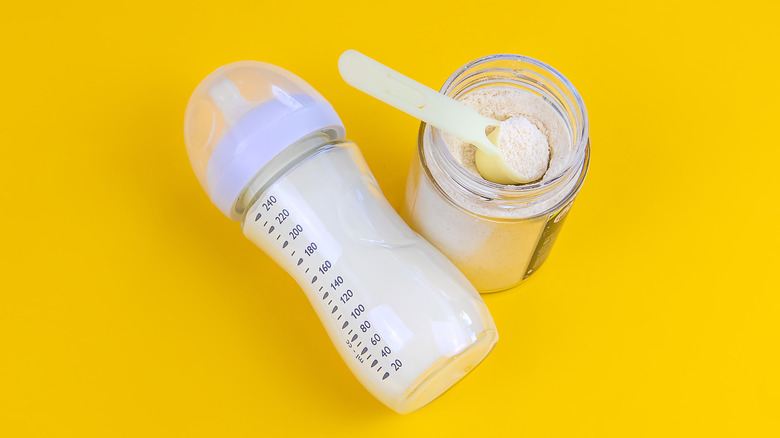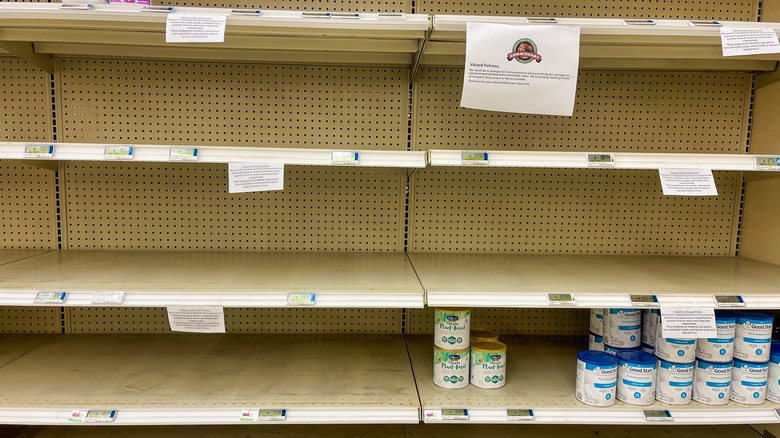The End Of The Baby Formula Shortage May No Longer Be In Sight
Extreme weather has never been something to celebrate, but it is especially alarming when severe thunderstorms end up disrupting operations at a plant seen as key to ending the current infant formula shortage being felt across the country, per The Wall Street Journal,
In a statement, Abbott reported, "Torrential storms produced significant rainfall in a short period of time — overwhelming the city's storm water system in Sturgis, Michigan, and resulting in flooding in parts of the city, including areas of our plant." That facility, which was originally shut down in February, just restarted operations in May after it sorted out a host of problems, including a bacterial contamination and a leaky roof, per Voices of America (VOA). Those problems sickened four babies, two of whom died. This triggered a huge product recall, per CNBC, leading to the formula shortage.
Abbott's decision to stop production and inspect the plant this time around means it has to stop making EleCare, which is meant to be given to babies who suffer from digestive challenges and food allergies, per the VOA. After the company reopened last month, it anticipated that it would take about three weeks before the product would be restocked at retailers.
Abbott says it has enough until it goes back online
While this weather-related disruption might have changed that timeline, Abbott stated that it has enough EleCare, along with its other formulas, in stock to sell to customers until the plant is up and running again, per The Wall Street Journal. Abbott also stated that it would be working with the U.S. Food and Drug Administration (FDA) to ensure that the plant was ready to pick up where it left off.
It would be inaccurate to blame Abbott alone for the infant formula shortage. Per the VOA, just four companies — Abbott included — make 90% of the infant formula sold in the country. Plus, the government has strict importation regulations involving infant formula; laws which have since been relaxed so that formula could be imported to cover the shortfall.
"It's kind of like a perfect storm of so many terrible things happening and No. 1, should never have happened in the first place and we could have absolutely prevented it," Shazi Visram, CEO of Baby goods manufacturer HealthyBaby said to CNBC. While the original timeline as envisioned by FDA Commissioner Robert Califf before supplies could return to normal was set at two months, it is now not known how long it will actually take before supplies return to normal.

